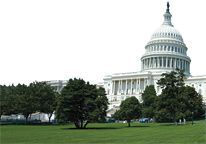New York's highest court of appeals has held that no-fault insurers cannot deny no-fault benefits where they unilaterally determine that a provider has committed misconduct based upon alleged fraudulent conduct. The Court held that this authority belongs solely to state regulators, specifically New York's Board of Regents, which oversees professional licensing and discipline. This follows a similar recent ruling in Florida reported in this publication.
Congress Preserves Medicare Physician Fee Schedule
In what has been an annual occurrence since 2003, Congress granted a last-minute reprieve to chiropractors and other health care professionals facing proposed Medicare reimbursement cuts. On July 15, 2008, by margins of 70-26 in the Senate and 383-41 in the House of Representatives, bipartisan lawmakers overrode a presidential veto of H.R.6331, the Medicare Improvements for Patients and Providers Act of 2008. It marked only the third time Congress has overturned a presidential veto under the Bush administration.
The stated purpose of H.R.6331 is to "amend titles XVIII and XIX of the Social Security Act to extend expiring provisions under the Medicare Program, to improve beneficiary access to preventive and mental health services, to enhance low-income benefit programs, and to maintain access to care in rural areas, including pharmacy access, and for other purposes." Included in the legislation is a provision to continue the Medicare Physician Fee Schedule (MPFS) at its current rate through the end of this year (rather than the 10.6 percent cut that would have gone into effect July 1, 2008) and then grant an additional 1.1 percent positive update for 2009. In addition, the Physician Quality Reporting Improvement Initiative (PQRI) will be extended for two years and PQRI incentive payment updates will be increased to 1.5 percent for the remainder of 2008, and then to 2 percent for 2009 and 2010. The money to pay doctors will come from the government-subsidized Medicare Advantage health care plan program.

The congressional override represents a dramatic turnaround from just over a month ago, when it appeared Medicare cuts were inevitable (See "Medicare Cuts Loom" in the July 15 issue of DC). At that time, two similar bills designed to offset the cuts, one introduced by Sen. Charles Grassley (R-Iowa) and the other by Max Baucus (D-Mont.), appeared to have stalled permanently. Grassley expressed his frustration at the time:
"The Democratic leaders' bill failed. They knew it would. The Democratic leaders wouldn't even allow a Senate vote on an alternative that could be signed into law immediately. Their political exercise wasted time and taxpayers' money. You might as well take a match to a pile of tax dollars. Now, Congress has 18 days left to make sure doctors serving Medicare patients don't get hit with a draconian cut that would put them in the position of not being able to serve seniors. Lawmakers need to work together to fix the Medicare physician payment problem, address Medicare Advantage problems, and make sure we don't create new problems for Medicare's already troubled fiscal condition by overreaching. I hope that this failed vote will get us to the negotiating table."
However, Senate Democrats overrode an attempted Republican filibuster of the Baucus bill, an event that featured the return of Sen. Ted Kennedy (D-Mass.) to the Senate floor for the first time since surgery to remove a brain tumor in June. Although Kennedy did not vote as part of the full congressional veto override, he did state, "It's a great vote and a great day for America's seniors."
According to the Centers for Medicare & Medicaid Services (CMS), some submitted claims may have been paid at the lower reimbursement rate in effect as of July 1 - despite the fact that the Department of Health and Human Services stepped in and froze the MPFS until July 10, allowing Congress time to reconvene following the July 4 holiday and address the issue. CMS says some claims may have been processed at the reduced rate because it sent out the revised fee schedule (reflecting the 10.6 percent cut) before Congressional action took place. However, CMS says discrepancies between the reduced rate and the rate upheld by H.R.6331 will be reprocessed:
"Under the Medicare statute, Medicare pays the lower of submitted charges or the Medicare fee schedule amount. Claims with dates of service July 1 and later billed with a submitted charge at least at the level of the January 1 - June 30, 2008, fee schedule amount will be automatically reprocessed. Any lesser amount will require providers to contact their local contractor for direction on obtaining adjustments. Non-participating physicians who submitted unassigned claims at the reduced nonparticipation amount also will need to request an adjustment."
The American Chiropractic Association recommends doctors of chiropractic contact their local carrier to answer any specific questions regarding the CMS fee schedule. To view the CMS carrier directory, visit www.cms.hhs.gov.



